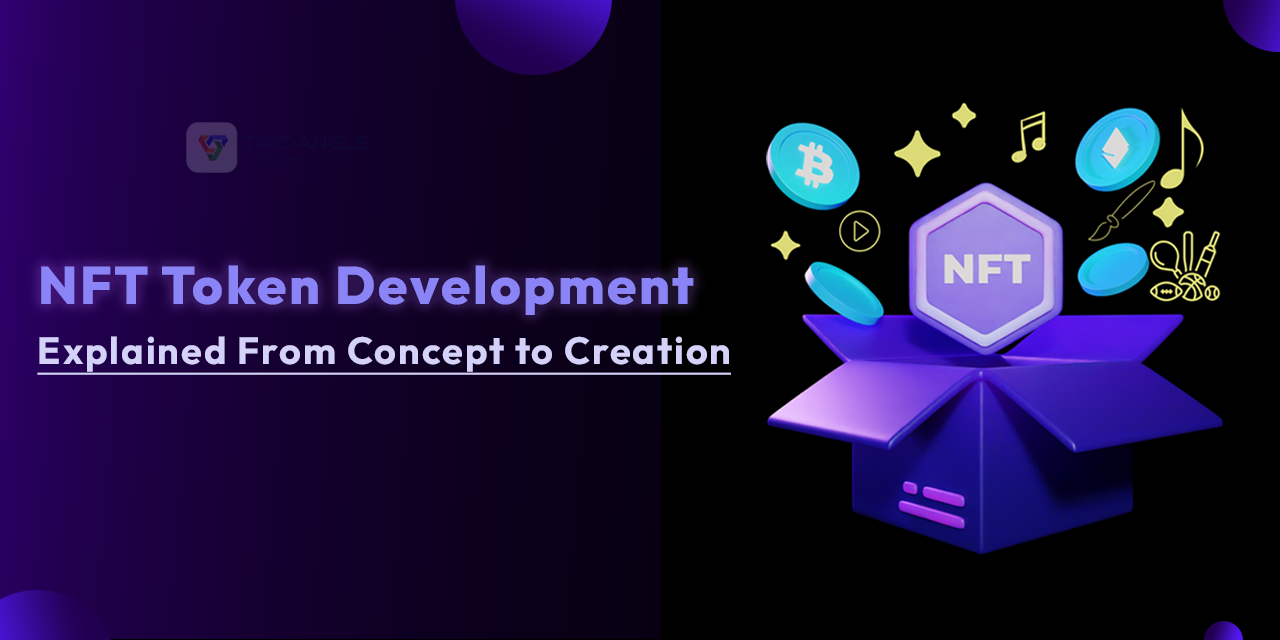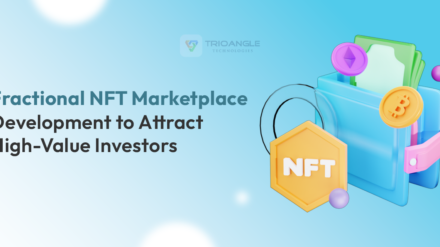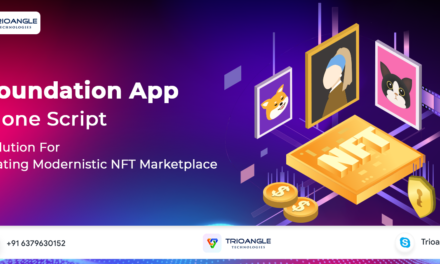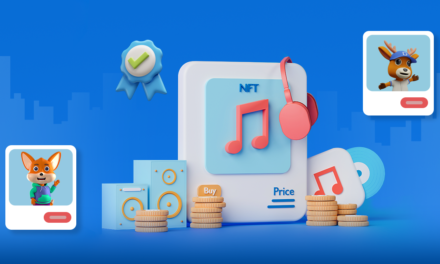NFT token Development is the new way for digital entrepreneurs to thrive. Like gold, NFTs have unique worth, limited availability, and strong demand. Instead of using pickaxes and mines. You rely on smart contracts and blockchain technology.
NFTs are more than digital assets. They act as certificates of ownership on the blockchain. It safeguarding art, music, gaming items, and real-world properties. If you’re planning to launch a marketplace. A play-to-earn game, or a tokenized real estate platform, developing NFT tokens is key.
Using the right technology, security, and strategy allows you to mint, manage, and trade NFTs without hassle. The market is on the rise, and those who move quickly will influence the future of digital ownership. Are you ready to claim your spot in the NFT boom?
Want to begin your NFT Token Development? Let’s start!
Learning About NFTs: Why Businesses and Artists Are Starting to Use Them
NFTs, which stand for Non-Fungible Tokens. Unique digital items are kept on a blockchain. They are different from cryptocurrencies in that you can’t trade them equally. Because each NFT has its specific worth. Think of them as digital certificates. It proves ownership of art, music, collectibles, and virtual goods.
For businesses, NFT Token Development is a game-changer. Entrepreneurs can design branded NFTs, start digital membership programs, or create marketplaces. With NFT Marketplace Development, the buying, selling, and trading of NFTs is simple.
NFTs use special computer programs called smart contracts to handle deals automatically. cutting out the middleman. This makes things safe, clear, and quick. An NFT Token Development Company provides the right tools to develop and scale your NFT-based business.
From gaming to real estate, the NFT space is booming. Whether you need an NFT Token Development App or a custom solution, the time to innovate is now.
Ready to transform your business with NFTs? Let’s build your digital future!
Different Types of NFT Tokens Based on Functionality
NFTs are more than digital items to collect. They play different parts in many businesses, helping companies. If you want to enter into NFT token development, it’s important to know the different kinds and what they do. Here’s a fuller explanation of these categories.
#1 Utility NFTs (Access & Perks Tokens)
These NFTs offer unique advantages, access, or perks. They work like special online VIP tickets that unlock exclusive stuff, like videos, events, or services. Companies use them to reward loyal customers, manage subscriptions, and offer better memberships.
For instance… Nike’s CryptoKicks are digital sneakers that provide special benefits to their owners.
#2 Asset-Backed NFTs (Real-World Value Tokens)
These NFTs signify ownership of both physical and digital items. They enable users to exchange tangible assets. such as real estate, stocks, or luxury items on the blockchain. NFT Token Development Software ensures secure and verifiable ownership records.
Example: Real estate NFTs, where token holders own fractions of a property.
#3 Governance NFTs (Voting & Decision-Making Tokens)
These tokens give holders voting rights in decentralized communities and platforms. They enable users to take part in the decision-making for NFT projects. or DAOs (Decentralized Autonomous Organizations). Common in NFT Marketplace Development, helping communities shape platform policies.
Example: Axie Infinity’s AXS token, which allows players to vote on game updates.
#4 Security NFTs (Investment & Profit-Sharing Tokens)
These NFTs represent an investment contract, offering dividends or profit-sharing rights. They are regulated under securities law, ensuring legal compliance. Used in tokenized stocks, revenue-sharing models, and digital bonds.
Example: NFT-based company shares, where holders receive a percentage of profits.
#5 Identity & Certification NFTs (Verification & Credentials Tokens)
These NFTs store personal identities, academic certificates, and professional licenses. Businesses use them for secure identity verification and fraud prevention. Universities issue NFT-based degrees that cannot be forged.
Example: MIT’s blockchain-based digital diplomas for graduates
#6 Fractional NFTs (Shared Ownership Tokens)
These NFTs allow many people to own a fraction of a high-value asset. They lower entry barriers for investments in expensive assets like art or real estate. A NFT Token Development Company helps businesses tokenize high-value assets securely.
Example: Fractionalized Bored Ape NFTs, where many investors share ownership.
#7 Dynamic NFTs (Adaptive & Evolving Tokens)
Unlike standard NFTs, these change over time based on external conditions. Used in gaming, sports, and real-world applications.
Example: A player’s NFT character upgrades as they progress in a game
Different NFT Token Standards: A Guide for Entrepreneurs
NFTs are built on blockchain networks, but the rules can vary. Different blockchains have unique NFT token standards. It determines how NFTs are created, stored, and exchanged. . If you’re venturing into NFT Token Development. Knowing these standards is crucial for picking the right technology for your business.
Ethereum-Based NFT Standards
- The ERC-721 rule is the first and most used NFT rule on Ethereum. It lets people make special tokens that can’t be split up. Each token features a distinct ID. It makes it perfect for digital art, collectibles, and real estate.
- ERC-1155 is a versatile token standard. It allows for both NFTs and fungible tokens to be managed within one smart contract. This approach lowers transaction fees and enhances efficiency. It is used in gaming. It enables players to exchange various in-game items such as weapons, skins, and collectibles.
- ERC-998 enhances ERC-721 by enabling NFTs to have other NFTs or fungible tokens. This feature is beneficial for grouping assets, like a virtual real estate NFT that comes with tokenized furniture and digital artwork.
Solana NFT Standard
- Solana leverages Metaplex’s Token Metadata Standard. It provides fast and affordable NFT transactions. In contrast to Ethereum… Solana’s design removes the burden of high gas fees. It makes it a popular option for gaming and extensive NFT marketplaces.
Binance Smart Chain (BSC) NFT Standards
- BEP-721 is like ERC-721, but it’s for the Binance Smart Chain. It lets you make special NFTs and costs less to use than Ethereum. You can find this standard in NFT marketplaces and DeFi projects.
- BEP-1155 is the multi-token standard for BSC, akin to ERC-1155. It allows for batch transfers. which helps lower transaction costs for extensive NFT projects. such as gaming and virtual assets.
Other Blockchain NFT Standards
- TRC-721 (Tron) serves as Tron’s standard for NFTs, much like ERC-721 does for Ethereum. It enables faster transactions and lower costs. It makes it a economical choice for NFT projects.
- CIP-68 (Cardano) presents a new NFT standard. It enables metadata updates. It facilitates the creation of dynamic NFTs that can change and develop over time.
- XRP Ledger (Ripple NFTs) features a special NFT standard. It is designed for energy efficiency and incorporates royalty enforcement to benefit creators.
- The Flow NFT Standard supports platforms such as NBA Top Shot. It focuses on scalability and widespread use. It lowers transaction fees and provides smooth NFT interactions.
Choosing the Right NFT Token Standard for Your Business
The right NFT token standard depends on your project needs.
Ethereum is well-known as a secure and widely used option. Solana is known for being fast and affordable, and Binance Smart Chain is cost-effective. Working with an NFT Token development company can help you decide which blockchain is best for your NFT business.
Ready to start your NFT project? Let’s build what’s next!
An Easy Guide to NFT Token Development for Businesses
NFTs are more than online items to collect. They show how we will own things online in the future. By developing NFT tokens, businesses can explore new ways to generate revenue. It ranges from gaming items to property titles.
But how do you create one? Let’s break it down like building a franchise, where each step adds value to your business.
Step 1: Define Your NFT’s Purpose (The Business Idea)
- Every successful franchise starts with a unique concept. Like that your NFT needs a clear purpose.
- Will it be a digital membership, a tokenized asset, or a gaming collectible?
- Exclusive perks, limited editions, and real-world value make your NFTs desirable.
- A strong concept attracts buyers and keeps them engaged.
Step 2: Choose the Right Blockchain (The Location)
Selecting the correct blockchain is like selecting a good place for your business.
- Ethereum is comparable to a high-end, central area – costly, yet well-regarded.
- Solana is a fast-growing suburban area—affordable, quick, and scalable.
- Binance Smart Chain (BSC) is a budget-friendly alternative for startups.
- Polygon sits between luxury and affordability—Ethereum compatibility with lower costs.
Step 3: Develop Smart Contracts (Your Business Agreements)
Designing smart contracts is the next step. this comprises as follows
- Think of smart contracts as your legal agreements- rules set in stone.
- These self-executing codes handle NFT ownership, transfers, and royalties.
- Poorly coded contracts lead to loopholes. Hire an NFT Token Development Company for expert solutions.
- Royalties ensure creators keep earning when NFTs are resold, like a franchise fee for each new sale.
Step 4: NFT Design & Mint (Your Product Lineup)
Design and Minting are the next stages. This includes the following sub processes.
- NFTs need to be unique and appealing, like a product lineup in a store.
- They come with metadata—name, description, and attributes (like product tags).
- Decide if metadata should be stored on-chain (permanent) or off-chain (cost-effective).
- Use NFT Token Development Software to generate and mint your collection.
Step 5: Build or Integrate an NFT Marketplace (Your Storefront)
Integrating NFT marketplace for your storefront is the important stage in this process.
- You need a place to sell and trade NFTs, like opening a store.
- You can list on existing marketplaces like OpenSea. Create a custom NFT marketplace for full control.
- A well-designed NFT Marketplace Development ensures smooth transactions and brand recognition.
- Features like auctions, instant buy, and wallet integration enhance user experience.
Step 6: Secure Your NFTs & Ensure Compliance (Protect Your Business)
- No one wants a business that gets hacked or faces legal issues.
- Use secure wallets, encrypted transactions, and two-factor authentication.
- Ensure your NFTs follow copyright laws and blockchain transparency.
- Regular audits prevent security loopholes and unauthorized modifications.
Step 7: Market & Launch (Build Your Brand)
- A business without marketing is invisible—same for NFTs.
- Use social media, collaborations, and exclusive perks to attract buyers.
- Offer early access or NFT Token Development App integration for more utility.
- The more useful your NFTs are, the stronger their demand.
Is NFT Token Development Right for Your Business?
Think beyond digital collectibles. NFTs are transforming industries. NFTs are changing how we own things online, like special memberships, tokenized real estate, or items in video games that can change. To make NFT token development work well, you need a good plan, the correct tools, and expert knowledge.
That’s where Trioangle stands out. We don’t develop NFTs. We create business-driven solutions. As a premier NFT Token Development Company, we build custom NFT ecosystems, ensuring security, seamless transactions, and future-ready scalability.
Our NFT Token Development Software empowers businesses to launch their projects with confidence.
NFTs are more than a trend—they’re the foundation of digital ownership.
Let’s craft your NFT future with Trioangle and turn your vision into a thriving reality.





